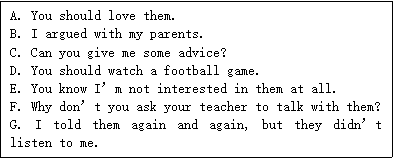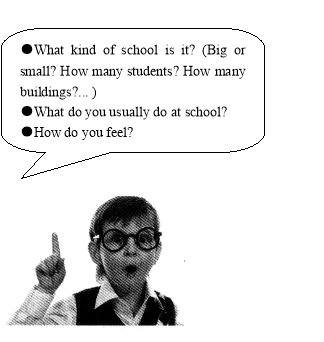题目内容
【题目】The first robots were invented in the 1920s. Robots have appeared in many American films. In some films, they are stronger, faster and cleverer than people.
In real life, robots are mainly used in factories. They do some dangerous and difficult jobs for humans.
Robots also helpdisabledpeople, for example, blind people. Today many blind people have a guide dog to help them. In the future, guide dogs might be robot dogs.
One kind of robot guide dog has wheels. It moves in front of the owner. It is very clever. It knows the speed of its owner’s walk. The owner wears a special belt (带子). This belt sends instructions to the owner from the dog, such as “Stop here”, “Turn left” or “Turn right”.
In the United States, another kind of robot helps disabled people to take care of themselves in their daily life. The robot hears the sound of its owner’s voice. It follows instructions such as “Turn the page” or “Make a cup of coffee”.
Robots are also used in American hospitals. They can do simple jobs. At one hospital, for example, a robot takes meals from the kitchen to patients’ rooms. It never gets lost because this robot has a map of the hospital in its computer memory.
Though robots can help people in many different ways, they will never take the place of humans.

【1】From the passage, we know robots cannot be ______.
A. dangerous animals B. factory workers
C. guide dogs D. hospital helpers
【2】A robot guide dog ______.
A. goes in front of the blind people
B. walk side by side with blind people
C. has a map in its head
D. helps patients with their meals
【3】The underlined word “disabled” means ______.
A. 不能的 B. 有害的 C. 失灵的 D. 残疾的
【4】Some disabled people need robots help to ______.
A. take care of themselves
B. talk to other people
C. become scientists
D. do dangerous jobs
【5】In the passage, the writer wants to tell us that ______.
A. robots are stronger and cleverer than humans
B. disabled people cannot look after themselves without the robots
C. robots will take the place of humans some day in the future
D. robots can help humans in many different ways
【答案】
【1】A
【2】A
【3】D
【4】A
【5】D
【解析】试题分析:这篇短文主要介绍了机器人发明于二十世纪二十年代,以及机器人在现实生活中的应用。如在工厂:机器人可以用来帮助人们做一些危险性大的工作,机器人可以帮助残疾人等;在美国的医院,机器人能做一些简单的活儿。
【1】A细节理解题。根据短文的描述可知。文中并没有提到机器人会变成危险动物。结合选项可知应选A。
【2】A细节理解题。根据短文“One kind of robot guide dog has wheels. It moves in front of the owner. ”的描述可知,“导盲犬”走在盲人的前面。故应选A。
【3】B词义猜测题。根据下文“for example, blind people.”介绍可知,盲人就是残疾人。结合选项可知应选B。
【4】A细节理解题。根据短文“In the United States, another kind of robot helps disabled people to take care of themselves in their daily life.”的描述可知,机器人在日常生活中帮助残疾人照顾他们自己。故应选A。
【5】D主旨大意题。通读全文可知,作者想告诉我们,机器人在许多不同的方面能帮助人类。故应选D。








